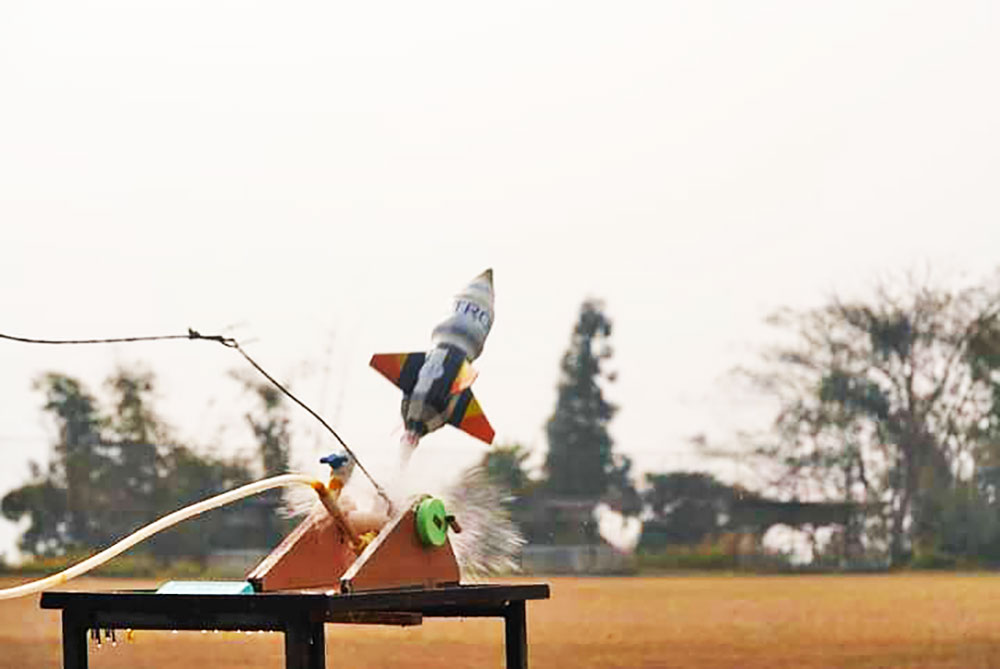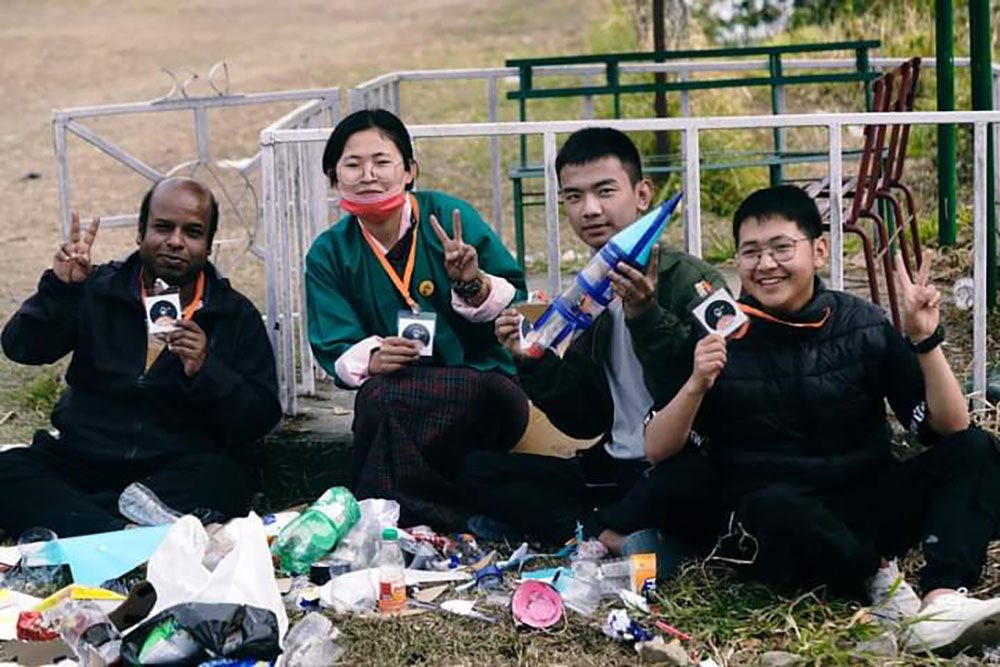KP Sharma
To realise His Majesty’s vision of fostering technological advancement and nurturing technologically competent youth, GovTech, in collaboration with Jigme Namgyel Engineering College and the Ministry of Education and Skill Development, organised a weeklong National Space Challenge for Class XII science students.
The event, which commenced on February 17 and concluded yesterday, brought together 50 students and 16 teachers from across the country, representing 17 dzongkhags, who focused on Hydro Rocket development and launch.
Hydro rockets, also known as water rockets, utilise water expelled from a nozzle to create thrust, demonstrating physics and engineering principles, especially Newton’s third law of motion.

Hydro rocket developed by Class XII Science students
According to GovTech, the space challenge aimed to develop skills in systems engineering, material optimisation, critical thinking, communications, and teamwork.
“The participants are expected to learn about hydro propulsion principles, aerodynamic design, material science, problem-solving, collaboration, and safety engineering.”
An official from GovTech explained that hydro rockets are made from plastic bottles partially filled with water and pressurized with air.
These rockets fly into the air by shooting out water at high speeds. This setup allows for experimenting with different factors like the amount of water used, air pressure, and the design of the rocket itself.
By experiencing these elements, students can learn about aerodynamics, pressure, and force in a hands-on way.
The event was resourced by space engineers from GovTech and college student volunteers from Jigme Namgyel Engineering College.
Regarding the resource persons, the agency said that they bring expertise in space science and engineering to the table.
“The space engineers teach about topics like rocket propulsion systems, while the college student volunteers, who are studying STEM courses, act as friendly mentors, offering support and motivation,” the college said.
GovTech emphasised that through workshops, demonstrations, and interactive sessions, young participants acquire practical skills in systems engineering and design.
“This hands-on experience helps prepare them for future endeavors in STEM (Science, Technology, Engineering, and Mathematics) fields and may even spark their interest in pursuing careers in STEM-related industries,” according to GovTech.
The event has been allocated a total funding of 0.5 million Ngultrums. Despite the modest budget, GovTech’s mission is to provide accessible education on space science and technology.
“By utilising low-cost methods, the event engages participants in hands-on learning experiences, emphasising inclusivity and promoting STEM education.”
While, the first position was secured by Wangdue, Chukha was declared the first runners up and Dagana as the second runners up of the challenge respectively.


